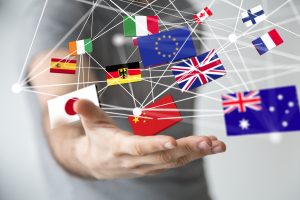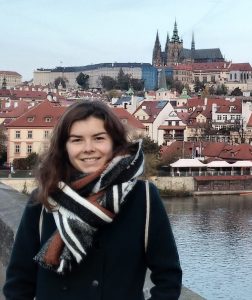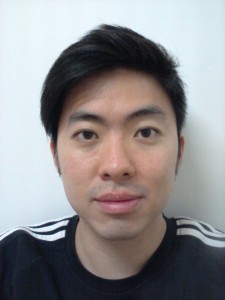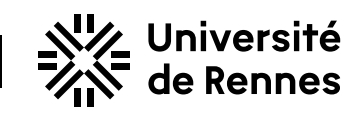 The ENSCR offers them a range of opportunities to broaden their experience and find other ways of thinking, learning and working in Europe or the rest of the world.
The ENSCR offers them a range of opportunities to broaden their experience and find other ways of thinking, learning and working in Europe or the rest of the world.
List of international partnerships
The ERASMUS + programme
This programme provides grants to help students to take up a placement (in a company or university laboratory) or a period of studies in a European country. The length of the stay can be from 3 months to two  terms. The ENSCR has reciprocal agreements with many European universities that are renewed each year, as well as partnerships in industry. Each stay gives entitlement to an Erasmus grant.
terms. The ENSCR has reciprocal agreements with many European universities that are renewed each year, as well as partnerships in industry. Each stay gives entitlement to an Erasmus grant.
The aim of the ECTS system (European Credit Transfer System) is to create transparency within France and Europe for the weighting given to course modules or placements. All students who have moved to one of our European partners will receive a number of credits to correspond with the period of study or placement that they have undergone, which will be credited in their courses at the ENSCR.
 “I left for five months during the first semester of my 3rd year of school at the University of Chemistry and Technology (UCT) in Prague, Czech Republic. The goal of this exchange was to acquire skills similar to those I would have had at the ENSCR while enjoying courses in English and another way of teaching. This experience allowed me to travel and meet students of other nationalities. At the beginning of the stay, Czech seemed inaccessible to me but after a few language classes at the UCT, I learned to cope in everyday life. I strengthened my level of English during classes and thanks to other Erasmus students. This semester was also an opportunity to discover Prague and the Czech Republic during the winter by enjoying outdoor rinks, the many Christmas markets, hockey games and the goulash!”
“I left for five months during the first semester of my 3rd year of school at the University of Chemistry and Technology (UCT) in Prague, Czech Republic. The goal of this exchange was to acquire skills similar to those I would have had at the ENSCR while enjoying courses in English and another way of teaching. This experience allowed me to travel and meet students of other nationalities. At the beginning of the stay, Czech seemed inaccessible to me but after a few language classes at the UCT, I learned to cope in everyday life. I strengthened my level of English during classes and thanks to other Erasmus students. This semester was also an opportunity to discover Prague and the Czech Republic during the winter by enjoying outdoor rinks, the many Christmas markets, hockey games and the goulash!”
The ARFITEC programme (Argentine France Ingénieur Technologie)
This is an inter-governmental programme that allows students to spend 1 or 2 terms within a network of partner universities in Argentina. This network includes the following establishments: the Universidad Nacional del Litoral, the Universidad Nacional del Nordeste and the Universidad Nacional del Centro de Buenos Aires, each specialising in water and the environment. All students who take these courses receive a grant.
The BRAFITEC programme (Brésil France Ingénieur Technologie)
This is an inter-governmental programme that allows students to spend 1 or 2 terms within a network of partner universities in Brazil. All students who take these courses receive a grant.
The School is member of the Fédération Gay-Lussac which has partners in Brazil: the Universidade Federal de Uberlândia, the Universidade Federal do Rio Grande do Suland the UFSJ (Universidade Federal de São João del-Rei) – each specialising in chemical and environmental engineering.
Obtaining a dual qualification
A dual qualification (Engineering degree ENSCR-Master’s degree from abroad) usually implies an extension of the period of study.
Currently the options for obtaining a dual qualification are:
The integrated programme from the Franco-German University (ENSCR-ECPM Strasbourg in partnership with the universities of Dresden, Saarbrücken and Stuttgart). This programme enables students to obtain two national qualifications (the ENSCR engineering degree and a Master’s degree) that will give them the best awareness into the European labour market. Each student will receive a grant to help with the move from the Franco-German University (http://www.dfh-ufa.org/ )
Special agreements with European universities: Cranfield (England), Odense (Denmark), Valencia (Spain), Lund (Sweden)
List of dual qualification partnerships
Exchanges
The ENSCR has entered into reciprocal agreements with partner universities in several countries (Bulgaria, China, Canada, Ireland, Czech Republic, Romania etc.) that offer general opportunities for exchanges of one or two terms, without issuing a foreign qualification.
The time spent on a placement or exchange is credited to the student’s course work as part of obtaining the ENSCR’s engineering degree.
Financial aid
The ENSCR can offer grants or scholarships provided by the European Union, the French Ministry of Higher Education and Research and the European Commission and the Region of Brittany, that are available to students depending on their course, resources and the criteria set up by each programme.
Students submit a single application form for all scholarships managed by the ENSCR.
The decision to award a grant is taken by the Committee on student life and international mobility.
For more information: “ financial aid for moving abroad”.
Visa information: USA and Australia (for more details go to the web website of the appropriate Embassy).
Personal account
Zhilin Sim, 2nd year student in a French company in China

“ I worked at Rhodia R&D in Shanghai. My task was to create a green biodegradable surfactant suitable for using as a degreasing treatment in the leather industry. This was followed by studies to find out whether the formula was stable. During this placement, I found it easy to discuss things with the others members of the team and new ideas were welcomed. This placement enabled me to see in practice the ideas taught during the course. For foreigners, the sheer size and population of Shanghai is impressive. Public transport is well organised and travelling is easy even if you don’t speak Chinese. I decided to stay there for my 3rd year in the East China University of Science and Technology.”


